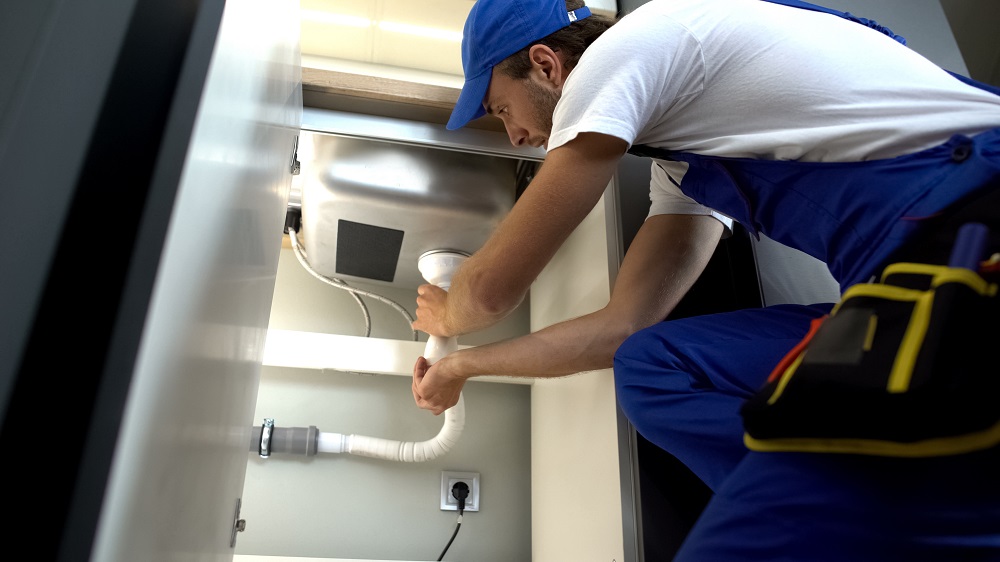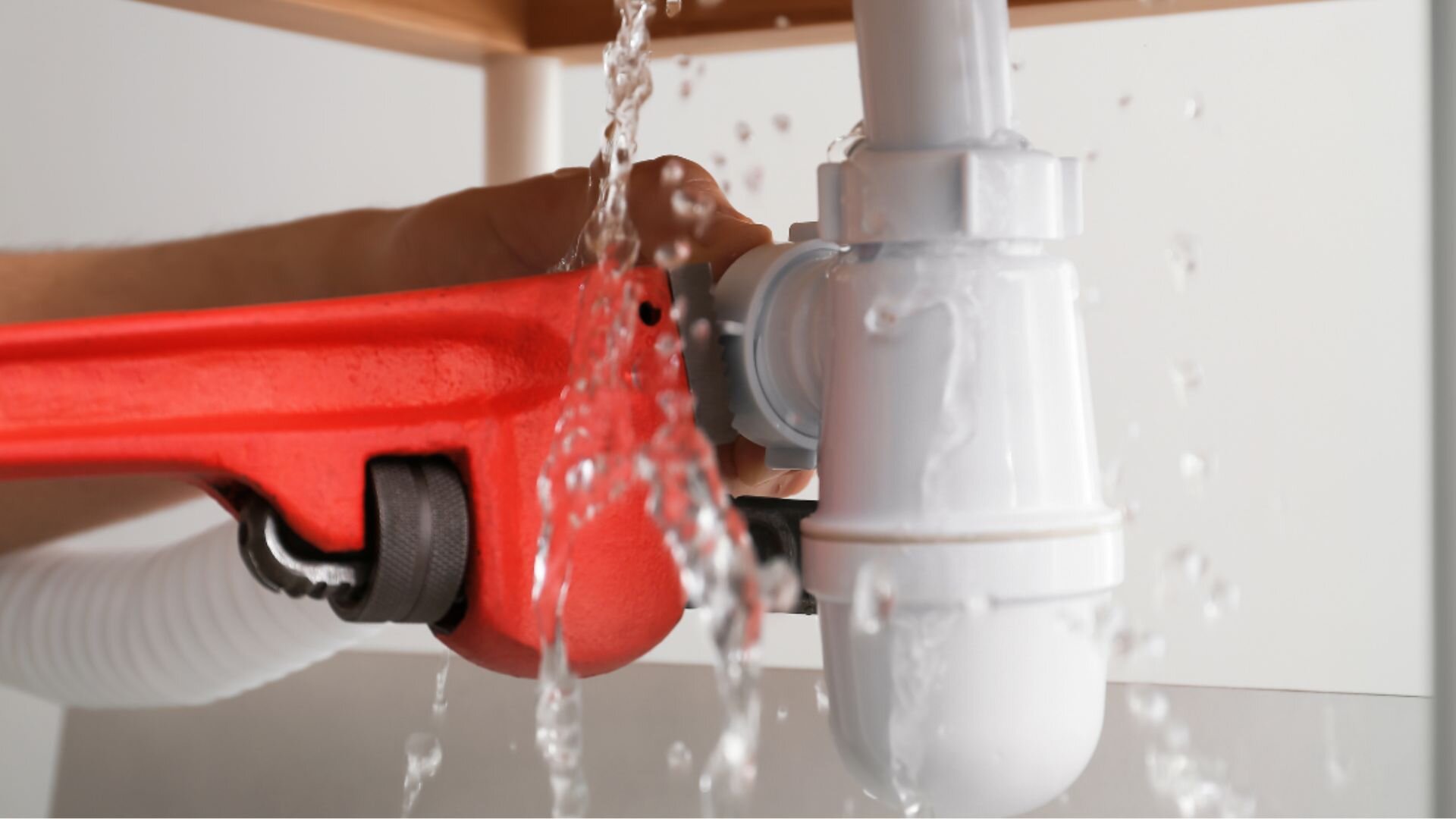Critical Solutions to Follow Until Professional Help Arrives
Critical Solutions to Follow Until Professional Help Arrives
Blog Article
We have come across this post involving Expert Tips for Emergency Plumbing Repairs below on the web and reckoned it made good sense to talk about it with you on this page.

Plumbing emergency situations can strike any time, causing stress and possible damage to your home. Whether it's a ruptured pipeline, a blocked drain, or a dripping tap, understanding just how to handle the circumstance until a specialist plumbing technician arrives can conserve you from additional complications. This write-up supplies important emergency situation pipes suggestions to aid you reduce damages and gain back control during a pipes dilemma.
Turn Off the Water
The initial step in any pipes emergency situation is to shut off the water. For localized concerns, such as a leaking tap or toilet, shut off the shutoff near the fixture. When it comes to a major leak or ruptured pipe, find your home's major water shut-off valve and turn it off quickly. Knowing the place of these shutoffs beforehand can conserve beneficial time during an emergency situation.
Address Tiny Leaks with Momentary Solutions
Small leaks can swiftly become significant troubles if left unattended. Utilize these momentary solutions until specialist help shows up:
While these solutions aren't permanent, they can assist decrease water loss and damage.
Unclog Drains Securely
A clogged up drain can be a discouraging and untidy concern. Right here's just how to tackle it:
If these techniques do not function, stay clear of making use of too much force, as it may worsen the blockage.
Handle Overflowing Toilets
An overflowing bathroom can trigger instant turmoil. Right here's what you must do:
Shut Off Your Water Heater
In specific emergency situations, such as a burst pipe, it's wise to shut down your hot water heater. This stops overheating or damages to the device when water quits streaming. Turn off the power supply to the water heater (electrical or gas) and allow it cool off to avoid potential threats.
Momentarily Stop a Burst Pipe
A ruptured pipe can result in significant water damages in mins. To reduce the issue:
Call an expert plumbing quickly to deal with the problem completely.
Deal With Frozen Water Lines Carefully
In chillier climates, icy pipes are an usual emergency situation. If you suspect an icy pipe:
Stop More Damage
Taking fast action to lessen damage can save you money and time over time. Below's how:
. Have an Emergency Situation Pipes Set
Prepare a fundamental pipes emergency set to take care of small issues efficiently. Your set needs to include:
Having these tools handy can make a substantial difference in your capability to take care of emergency situations.
Know When to Call a Professional.
While quick fixes can assist briefly, particular plumbing issues need instant specialist attention. Call a plumbing if:.
Immediately speaking to a specialist ensures the concern is resolved appropriately and protects against more complications.
Conclusion.
Plumbing emergencies can be overwhelming, but with the right knowledge and tools, you can manage the situation efficiently until help arrives. By turning off the water supply, addressing small leaks, and using temporary solutions, you can decrease damages and maintain your home safe. Bear in mind, these ideas are momentary options; always get in touch with a qualified plumber to take care of the origin of the problem. Prep work and fast reasoning are your ideal allies in any kind of pipes emergency.
8 Helpful Tips for Managing Plumbing Emergencies at Home
If your plumbing system hasn’t failed once, wait for it because almost everyone has a story to tell. Sometimes, it could be simple emergencies such as a leaking pipe, a blocked cistern, or even a big burst pipe. In situations like this, you need to have some handy tips to save you some money and from possible damages.
Take care of minor issues early.
Sometimes, you could have avoided an emergency by taking proactive measures while it was still early. Some major plumbing emergencies can be a result of an ignored minor issue. We recommend that you have items like plumbing tapes and other related items. A plumbing tape can allow you to manage minor leaks before the plumber arrives.
Cut off the water supply.
This tip is essential in almost any type of leakage problem. For problems like minor leakages in the toilet or kitchen, turn off the supply that takes water to the affected pipes. If the leakage is a major pipe, you must shut off the supply valve to the entire building. This will help you avoid flooding your home and neighbors if you share a flat.
Know your plumbing system
Folks typically move into a new apartment without understanding the water supply around the building. This can prove disastrous if a water emergency arises and the plumber is far away. The previous tip will prove useless if you don’t practice this one. More importantly, know where your water shut-off valve is located – you’ll need that knowledge to prevent potential home floods.
Have some common handy tools
There are lots of plumbing emergencies that you can handle without hiring a plumber. That’s why you must keep some tools available always. Some tools that you can use to fix simple plumbing emergencies easily include plumbing tapes, screwdrivers, thread seal tapes, plungers, pliers, tape measures, and rubber gloves.
Insulate your pipes from cold
You’ll save yourself from many plumbing expenses if you protect your water pipes from the cold. This is because of the harmful effects that cold weather can have on your pipes. During winter, your pipes can burst from being overly expected to freezing temperatures. So, make sure insulators are there to keep the pipes working correctly.
Avoid practices that will clog your toilet.
Many people indulge in practices that can damage the plumbing system of the entire building. One of these is when they use their toilet to dispose-off garbage. They flush all kinds of things, such as paper towels, bandages, hairs, female sanitary products, etc., down the toilet. This will block your toilet in the long run, incurring unnecessary expenditures. Dump such waste in the trash instead.
Check your dials regularly.
Sometimes, there could be leakages in your home without noticing them in time. So, constantly monitor your water meter dial. If the dial is reading when there is nobody using water, this is an indicator that there is leaking. Check for leaks immediately. Call a plumber as soon as possible if you can’t find any.
https://www.constructionplacements.com/8-helpful-tips-for-managing-plumbing-emergencies-at-home/

I am very focused on Plumbing Emergencies: Tips on What To Do Before and I hope you enjoyed reading the entire entry. Make sure you set aside a second to share this page if you enjoyed reading it. Thanks for going through it.
At This Website Report this page